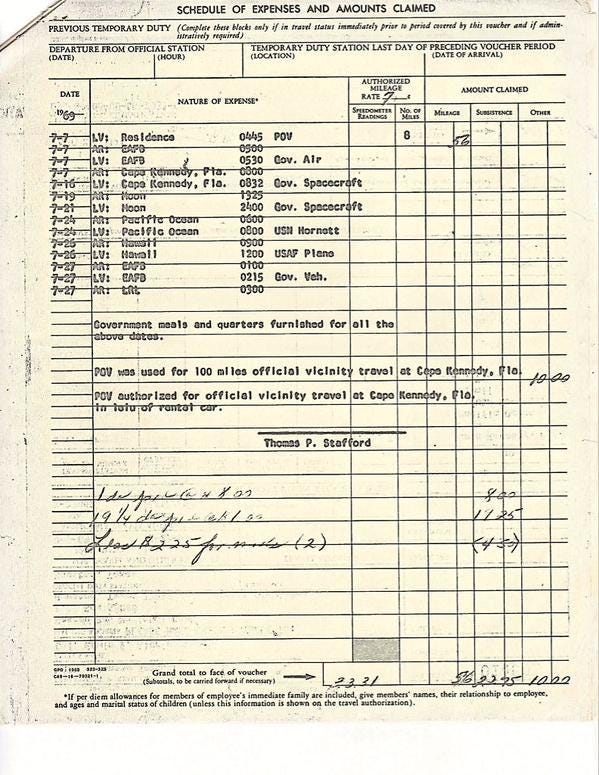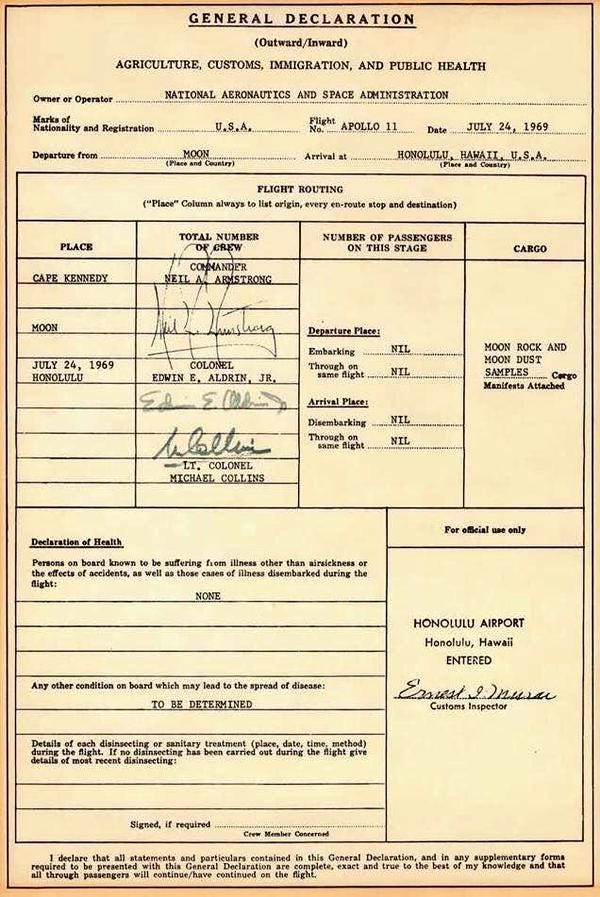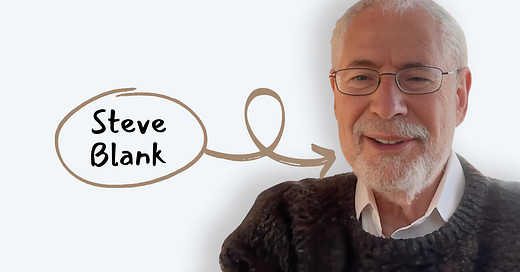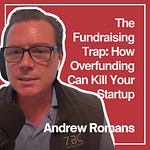In a recent podcast episode, I had the privilege of sitting down with Steve Blank, the legendary entrepreneur and father of the Lean Startup methodology. Our wide-ranging conversation delved into the secrets of successful entrepreneurship, the evolution of startup practices, and Steve's tireless mission to empower founders around the world.
He believes humor and optimism are critical for entrepreneurs to handle the ups and downs
Blank looks to entrepreneurship itself for funny stories and observations, ingesting varied experiences helps recognize patterns and opportunities
Steve Blank had a 5 minute interview with Steve Jobs at Next where they realized Blank wasn't the right fit as a marketer under Jobs
Blank explored starting an electric vehicle startup in the early 2000s with Scott Andrews and Tesla co-founder JB Straubel
Blank ultimately realized he no longer had the 24/7 passion required for a new startup at that stage of life
JB Straubel later found the perfect CEO in Elon Musk to build Tesla


More details from Buzz Aldrin ’s moon landing travel expense form. Photo via @TheRealBuzz/Twitter
Even the Apollo 11 astronauts, who were the first humans to land on the moon, had to go through customs when they returned to Earth.
Astronaut Buzz Aldrin revealed one of his favorite memorabilia items - the travel expense report he filed after the mission, which included reimbursement for the short car trip from his home to the Ellington Air Force Base in Houston.
Aldrin also tweeted an image of the customs form the Apollo 11 crew filled out, declaring their cargo of "moon rock and moon dust samples.
Blank compared the Apollo moon mission to disruptive innovation - the astronauts had to fill out customs forms about where they traveled (Moon) and what they brought back (moon rocks)
The clash between the Apollo astronauts' pioneering exploration and bureaucratic processes mirrored what startups face when innovating within big companies
One of the key insights Steve shared was the timeless importance of customer discovery and rapid iteration. "All you have on day one as a founder is a set of untested hypotheses," he explained. The key is to get out of the building, talk to potential customers, and use their feedback to validate or invalidate your assumptions. This approach, which forms the core of the Lean Startup methodology, has revolutionized the way entrepreneurs bring new products and services to market.
But Steve also emphasized that the startup landscape is rapidly evolving, driven by emerging technologies like artificial intelligence. "AI is going to change a lot of this stuff," he predicted. Entrepreneurs who harness the power of AI will be able to operate 100 or 1000 times faster than those doing things manually. At the same time, Steve cautioned that founders must retain the human-centered creativity and customer focus that lie at the heart of successful entrepreneurship.
"I remind entrepreneurs that while building startups is rewarding, it's important to step back and find ways to serve something larger than yourself - whether it's starting an NGO, dedicating yourself to a mission, or serving your local community. Entrepreneurship shouldn't be the sole focus in life. Contributing to society in a meaningful way also matters." —Steve Blank
Our conversation also touched on the venture capital industry, which Steve believes is ripe for disruption. He envisions a future where AI-powered tools help VCs make smarter, more data-driven investment decisions.
He also warned of the "dark side" of Silicon Valley, where the pursuit of financial returns can sometimes overshadow ethical considerations.
Lack of oversight from boards - no adult supervision or fiduciary responsibility for many unicorns
Obsession with financial returns above all else - investors don't care about toxic impacts as long as growth is strong
Loss of any moral center - willingness to invest in anything no matter how unethical if returns look good (e.g. Juul & teenage addiction)
Perhaps most inspiring was hearing about what drives Steve to keep teaching and advising startups, decades after retiring from an already successful entrepreneurial career. "Retirement was doing what I wanted, which was learning, continual learning," he shared. Steve's passion for empowering the next generation of entrepreneurs is truly infectious.
Whether you're an aspiring founder, a seasoned entrepreneur, or simply fascinated by the world of startups, my conversation with Steve Blank is packed with invaluable insights and hard-won wisdom. I walked away inspired by his vision of entrepreneurship as a calling, a grand adventure in service of creating something meaningful.
So if you're ready to navigate the startup journey with one of the most brilliant minds in the field as your guide, be sure to check out the full episode. You'll learn why Steve Blank is widely regarded as a startup legend – and walk away with a roadmap for turning your own entrepreneurial dreams into reality.
"Don't over optimize your first startup decision - you'll have many opportunities. Follow your passion and view entrepreneurship as a calling, not just a job. The key is creating something meaningful that drives real change, not chasing fame or fortune." — Steve Blank
Steve Blank
Steve Blank is an acclaimed Silicon Valley entrepreneur, innovator, and teacher. Over his long career, he has founded 8 successful startups in the tech sector. These include semiconductor firms Zilog and MIPS, computer company Convergent Technologies, and E.piphany, a pioneer in the dot-com customer relationship management space.
After retiring from startup operations in 1999, Blank turned his focus to teaching entrepreneurship. He began sharing his experiences and insights with students at Stanford, UC Berkeley, and other universities. It was through his classes that Blank developed the pioneering Customer Development methodology that launched the Lean Startup movement.
Blank is also a celebrated author, known for books like The Four Steps to the Epiphany and The Startup Owner's Manual. His work has earned him accolades including the Stanford University Undergraduate Teaching Award in 2009.
In recent years, Blank has helped create influential training programs that spread entrepreneurship education more broadly. He was instrumental in developing the National Science Foundation's Innovation Corps curriculum, which has now reached over 450,000 students worldwide. At Stanford, he co-founded popular courses on topics like Hacking for Defense and Hacking for Diplomacy.
Blank continues to serve on corporate and government advisory boards focused on technology innovation and policy. His abilities as a storyteller and deep insights on Silicon Valley history have made him a sought-after speaker and thought leader within the startup community.













Share this post